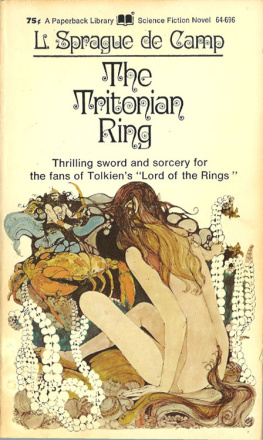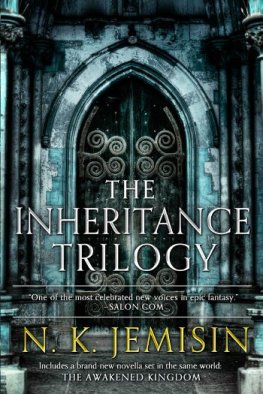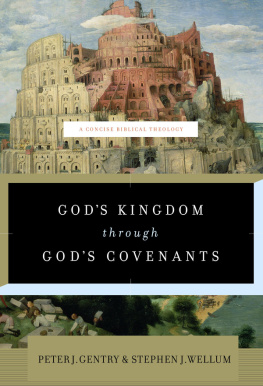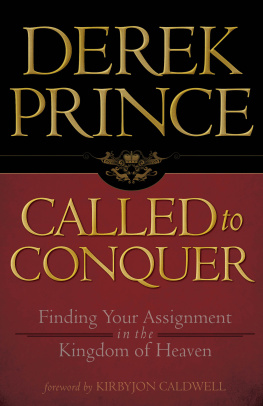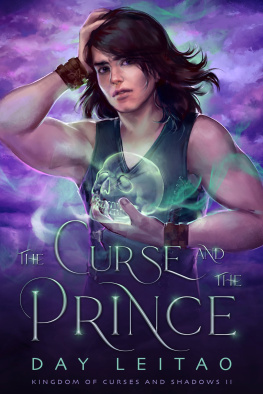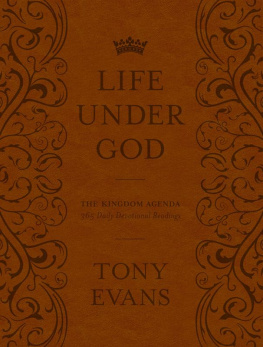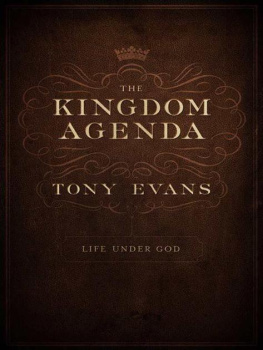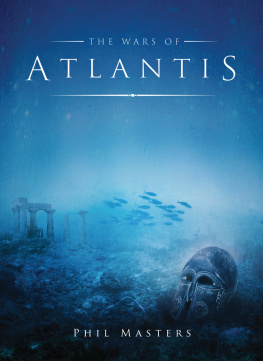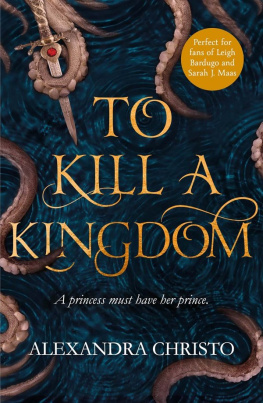The Tritonian Ring
( 1953 ) *
L. Sprague de Camp
AUTHOR'S NOTE
Alert readers will note resemblances between some of the names in this story and the names of persons and places in ancient history and mythology. Thus my "Euskeria" is cognate both with Scheria, the land of the Phaeacians or kingdom of Alkinoos in the Odyssey, and with Euskara, the Basques' name for their anomalous language. The story, however, has nothing to do with my serious opinions on such subjects as lost continents, human prehistory, and the origins of civilization, for which see Willy Ley's and my Lands Beyond and my various articles on these subjects.
Pronounce these names as you please. The letters d and (preconsonantal) y are meant for vowels like German and (or French eu and u), but may be rendered by the vowels of "up" and "it" respectively, rhyming Sl and Ryn with "hull" and "in." The characters , , and stand for long ah, eh, and oh sounds in French. Awoqqas may be rhymed with "caucus." The X in Ximenon is meant for a ks sound as in "box," but you may simplify it to z or s if you prefer.
L. Sprague de Camp
THE TRITONIAN RING
I. THE GORGON GOD
When the gods of the West were gathered in their place of assembly, Drax, the Tritonian god of war, said in h is ophidian hiss:
"Events will take a deadly turn for us in the next century unless we change this pattern."
The assembled gods shuddered, and the vibration of their trembling ran through the universe. Entigta, the sea-god of Gorgonia (a kingdom so ancient that it had withered to mere myth when Imhotep built the first pyramid for King Zoser) spoke in his bubbly voice out of the midst of his tentacles:
"Can you not tell us the true nature of this danger?"
"No. The only further clue my science gives is that the trouble centers in the continent of Poseidonis, in the kingdom of Lorsk. There is something about its being caused by a member of the royal family of Lorsk. I believe my own folk are also involved, but I cannot be sure. Since King Ximenon got that accursed ring I can no longer get through to them."
Entigta turned to Okma, the god of wisdom of Poseidonis, or Pus d to use the more ancient form. "That, colleague, would be in your department. Who are the royal family of Lorsk?"
Okma replied: "There are King Zhabutir and his sons Kuros and Vakar, and the infant children of the former. I suspect Prince Vakar, whose spiritual obtuseness is such that I cannot speak directly to him."
Entigta's tentacles writhed. "If we cannot communicate with this mortal, how shall we deflect him from hi s intended path?"
"We might pray to our gods for guidance," said the small bat-eared god of the Coranians, whereupon all the gods laughed, being hardened skeptics.
Drax hissed: "There is another way. Set other mortals upon him."
Ok m a said: "I object! Vakar of Lorsk, despite his defect, has been a faithful votary of mine, burning many fat bullocks upon my altars. Besides it might be true that such patterns of event are laid down by an inflexible fate, not to be altered even by a god."
"I have never subscribed to that servile philosophy," said Drax, his forked tongue flicking. He turned his wedge-shaped head towards Entigta. "Colleague, of all of us here, you command the most warlike worshippers. Send them to destroy the royal family of Lorsk and all of Lorsk if need be!"
"Wait!" said Okma. "The other gods of Poseidonis" (he looked around, noting Tandyla with all three of her eyes shut and Lyr scratching his barnacles) "and I ought to be consulted before such devastation is loosed upon our own"
The rest of the gods (or at least those not of Poseidonian provenance) shouted Okma down. Drax concluded:
"Waste no time, squid-headed one, for the peril is im minent!"
-
In Sederado, the capital of Ogugia in the Hesperides, Queen Porfia sat in her chambers with emeralds in her night-black hair and eyes as green as the emeralds, consulting with her minister Garal. The m inister, a short stout bald man who deceptively appeared to radiate bluff good humor and sterling worth, rolled up a sheet of papyrus and said:
"Come, come, madam. You are not consulting your best interests in refusing to marry the king of Zhysk. Why should you boggle at the mere detail of his present three queens and fourteen concubines when"
"Mere detail!" cried Queen Porfia, looking too young for a widow. "While Vancho was no god, at least while he lived I had that fat slob to myself . I do not care to wed one - seventeenth of any man, however royal."
"One-eighteenth," corrected Garal. "But"
"Besides, who would run Ogugia whilst I languished in gilded durance in Amfer ?"
"Perhaps you could spend most of your time here, where young Thiegos could comfort you."
"And how long before King Shvo found out and slew us both? Moreover, despite his fair promises to respect our independence, he would soon send some grasping Zhyskan governor to squeeze you dry as bones."
Garal gave a slight start, but said calmly: "You must remarry some time. Even your supporters murmur over the lack of a man at the head of the state. They would take even Thiegos ... "
"I do not see it. The island flourishes, and Thiegos, while amusing as a lover, would be quite impossible as king."
"My thought also. But since you must eventually have a consort, you could hardly ask for one better situated than Shvo of Zhysk. Or is there some other man ... ?"
"Not unless you count ... "
"Whom?" Garal leaned forward, eyes bright with interest.
"Just a foolish idea. When I went to Amfer as a girl ten years ago for that wedding of Shvo's daughter, one young princeling took my fancy: Vakar of Lorsk. Though no great beauty or mighty athlete, there was something about himan irreverent wit, a soaring fancy, a keenness of insight, unlike most of his lumpish compatriotsOh, well, he will no doubt have collected a dozen women by now and have forgotten the awkward Porfia . Now about this rise in harbor dues ... "
-
Zeluud, king of the Gorgon Isles, slept after his midday meal, lying on his back upon his ivory-legged couch. With each inhalation his paunch rose, and with each exhalation the paunch sank while the silken handkerchief that covered his face rose in its turn with the force of the king's breath, which issued from his hidden features with a mighty snore. A Negro dwarf, kidnapped years ago from Tartaros by Zeluud's corsairs, tiptoed about the chamber with a fly-swatter of reed and shredded palm-frond lest any noxious insect disturb the king's rest. And the king of ancient Gorgonia dreamed.
King Zeluud dreamed that he stood before the wet black basalt throne of Entigta, the squid-headed sea-god of the Gorgons. The king knew from Entigta's dark coloration that the god was in no affable mood, and from the rapidity with which the color-patterns chased each other over Entigta's mottled hide Zeluud further inferred that the god was in a state of ungodly agitation.
Entigta leaned forward on his sable throne, his slimy hands gripping the arm-rests carven in the likeness of sea-dragons, and fixed King Zeluud with his cold wet eyes. His voice bubbled out of the parrot-beak in the midst of the octet of tentacles that served Entigta for a face, like the gaseous products of decay bubbling up through the slime of one of the somber swamps of Blackland. Entigta said:
"King, do you obey me?"
"As always, God," said Zeluud, beginning to shake in his sandals, for he was sure that Entigta was about to impose some outrageous demand upon him.
"Well, trouble comes upon us from the North, and it is your place to deal with it. Trouble not merely for the Gorgades, but also for the entire race of the gods."
"What trouble, Lord?"
"The exact nature thereof we know not. I can but tell you it centers in the royal family of Lorsk in Poseidonis."

